Strictly Personal
The trial of Yemi Osinbajo by Sonala Olumhense
Published
3 years agoon
I am delighted that Vice-President Yemi Osinbajo has entered the fray for the presidential ticket of the APC. His candidature presents the potential for some answers Nigerian democracy desperately needs.
Two decades ago, Professor Osinbajo served in the government of one Ahmed Bola Tinubu, the current National Leader of APC who is also running for the ticket. Some of the children who were born at that time may vote for the first time in 2023.
Of course, we only hope there will be an election. I doubt that even the Vice-President believes there will be one: the most significant achievement of his administration is that Nigeria has descended into the category of the unsafe and insecure. Of course, should he emerge the APC candidate, he will campaign safely in an official government bubble despite its being an unofficial activity, but everyone knows that for voters and election officials, the challenge will be different.
And that is the principal problem which confronts Osinbajo: his candidature is trapped between ridiculous and incredulous. In his declaration, he claims to have thoroughly known Nigerians in the past seven years, having travelled widely and been with most of them.
“I stood where they stood and sat where they sat,” adding, “I believe that the very reason why the Almighty God gave me these experiences, these insights, and these opportunities, is that they must be put to the use of our country and it’s great peoples.”
I will not challenge Osinbajo’s faith; that is between him and God. But I will confront his presumptuousness and arrogance. His government worked to make Nigeria increasingly unlivable.
He anchors his presidential quest on Buhari, a man he describes as “a true Nigerian patriot, a servant of the nation in war and peace, and a man of integrity,” and positions his effort as being to “complete what we have started.”
But of which nation is Buhari a patriot? Perhaps Niger, which he does not hesitate to serve, or the United Kingdom, where he enjoys squandering Nigeria’s scarce resources on himself? Certainly not Nigeria, where he is a remorseless nepotist who pens obituary and birthday messages in place of statecraft.
A patriot is a man who makes sacrifices for his country ahead of himself and would give his all for her. Buhari is no such animal.
Integrity? It is not claiming to be something that makes you that thing: it is being so much of that thing that everyone identifies you as being that. You cannot be honest and hypocritical at the same time, and Buhari is a hypocrite.
A man of integrity is a man of his word, but the past seven years prove that Buhari is a man of many words but not of his word. A man of integrity is one who is not afraid to hold out his hands so people can see he has neither blood nor fecal matter on them. He is one who is not afraid to open his front door to demonstrate that he has nothing to hide.
How did Buhari reward Nigerians for buying his propaganda about how he would combat corruption? The moment he got into office, not only did he “cleverly” refuse to declare his assets publicly, but he also began to assemble around him the nation’s most corrupt men and women.
“As far as the constitution allows me, I will try to ensure that there is responsible and accountable governance at all levels of government in the country,” he had promised at his inauguration. “For I will not have kept my own trust with the Nigerian people if I allow others abuse theirs under my watch.”
It was startlingly untrue: He ducked the public disclosure of his assets, ducked compelling his ministers to publicly disclose theirs, ducked his ‘First 100 days’ promises, and scandalously ducked naming the nation’s top kleptocrats as he had promised. And that is how Nigeria commenced its descent into ungovernable, the world’s poorest and hungriest, with death and distress everywhere.
Integrity? The Fifth Schedule of the constitution affirms that a public officer shall not ask for or accept property or benefits of any kind for himself, stating that “the receipt by a public officer of any gifts or benefits from commercial firms, business enterprises or persons who have contracts with the government shall be presumed to have been received in contravention of the said sub-paragraph unless the contrary is proved.”
And yet, within weeks of taking office in 2015, Breaking Times, an Abuja newspaper, fearlessly identified the new Nigeria leader as the owner of a lake front N2.1 billion mansion in Asokoro, near Aso Rock, providing lavish pictures of activities at the property. The report was neither denied nor was the newspaper sued.
Similarly, in 2018, Buhari accepted a N45m gift from a shadowy organisation called the Nigeria Consolidation Ambassadors Network (NCAN), which paid for his APC presidential primaries forms. NCAN then conveniently—and triumphantly—disappeared into the shadows.
In other words, Buhari indicated he was open to presidential gift-receiving, contrary to the constitution. How do we know what else he has collected in the past seven years, and from whom? Nigerians and members of the international community are left to make up their minds whether Buhari simply does not care about Nigerians or about the constitution.
Among those watching eyes is the United States. EVERY year that Buhari has been in office, it has said in its annual Country Reports on Human Rights: “Although [Nigerian] law provides criminal penalties for conviction of official corruption, the government did not consistently implement the law, and government employees, including elected officials, frequently engaged in corrupt practices with impunity. Massive, widespread, and pervasive corruption affected all levels of government, including the judiciary and security services. The constitution provides immunity from civil and criminal prosecution for the president, vice president, governors, and deputy governors while in office. There were numerous allegations of government corruption during the year.”
The Buhari government has never contradicted this indictment. The truth is that to describe the impact of the Buhari administration merely as a “failure” is an act of self-deprecating generosity. The appropriate term for their work is “betrayal.” Former President Goodluck Jonathan did not perform as abysmally as this when Buhari demanded he resign.
In other words, concerning Nigerians, Osinbajo has not “stood where they stood and sat where they sat,” but with Buhari. If he wins the presidency, will he denounce the betrayal of which he was a part, as an honest starting point?
Clearly, it is because Tinubu knows how rotten Nigeria has become that he has found no reason why he should seize it as he has Lagos State. It is why he immediately dismissed Osinbajo as a ‘bastard,’ declaring: “I have no son grown enough to declare [for president].”
VP Osinbajo may never become President, but with Buhari to his right and Tinubu to his left, it is an act of courage for him to have determined he must run.
But if Osinbajo claims loyalty to God, he is the one who is now on trial.
This column welcomes rebuttals from interested government officials.
You may like
-


Dangote Refinery: A timely win for industrialisation, By Abiodun Alade
-


Mpox crisis: We need an equity-driven pandemic treaty, By Magda Robalo
-


Olympics had free lessons for African leaders, By Tee Nugugi
-
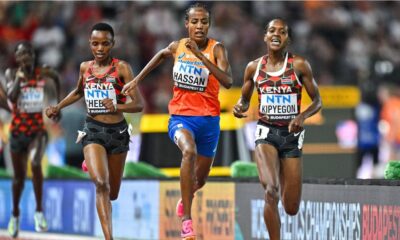

Athletes bring gold, economists bring debts, botched projects, By Joachim Buwembo
-


What is killing Nigerian musicians? By Azuka Onwuka
-
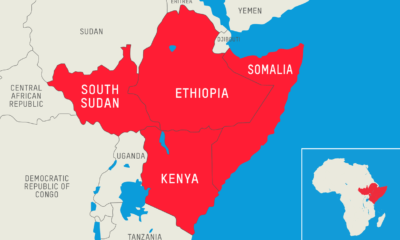

Borders should unite us, not divide us, By Andrea Aguer Ariik Malueth
Strictly Personal
For EAC states to excel, members should hire expatriate ministers, By Joachim Buwembo
Published
2 weeks agoon
October 11, 2024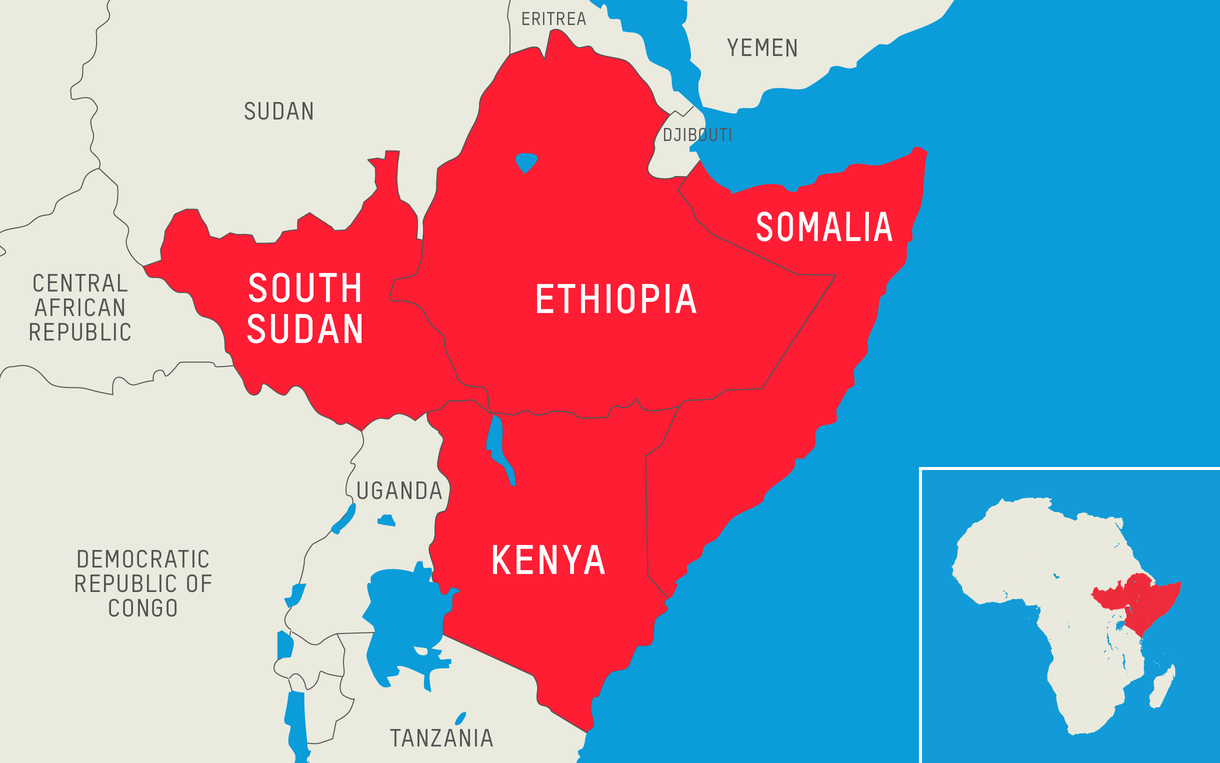
Next week, the East African Community, especially the original three members Kenya, Tanzania and Uganda, will be marking their revival Silver Jubilee, which is also an opportunity to reflect on 25 years after the passing of regional integration icon Mwalimu Julius Nyerere.
The integrationist and pro-federation Mwalimu would certainly be happy with the revival of the EAC. But how contented humanist Nyerere who committed his then poor country’s resources and lives to the emancipation of fellow Africans would be with the goings on in the region, can only be debated.
Hundreds of Tanzanian men and women at Nyerere’s command gave their lives so Ugandans would be saved from a dictatorship that attached low value to human life and “disappeared” political dissenters, with a few whose bodies were found having been disfigured sometimes with acid. In Kenya, extra-judicial executions of high-profile political dissenters were also being carried albeit with more sophistication than Uganda’s.
Should some people in Tanzania start derailing that lovely country backwards to catch up with the murderous Uganda and Kenya of the 1970s and criminalise the holding of different political views, then we would beg the EAC to find its manhood and insist that members start hiring expatriate ministers to man certain portfolios thus: For Justice and Law, expatriate ministers from the Scandinavian states would be preferable. But of course, beneficiaries of injustice and illegality would argue that ours are independent sovereign states; so to hell with protection of human lives.
For promotion of Trade and Tourism, expatriates from the United Arab Emirates would fit the bill. But of course, beneficiaries of poaching, smuggling and tax evasion would argue that ours are independent sovereign states; so to hell with expansion of trade and tourism.
For Industry, Indian expatriate ministers would do well to drive import substitution while creating millions of jobs in the region. But of course, beneficiaries of raw materials exportation and importation of consumer goods would oppose and argue that ours are independent sovereign states; so, to hell with the unemployed, human health and environmental protection.
For Finance and Economic Planning, Singaporean expatriate ministers would be appropriate, but of course beneficiaries of grand corruption and incompetence would argue passionately that ours are independent states; so let the taxes be stolen so the awful service delivery gets even worse while debilitating debts mount.
For Transport Infrastructure, expatriate ministers from the Netherlands would be suitable because integrated systems of air, rail, road and water were needed by yesterday, so that transport ceases being an obstacle and becomes an enabler of development instead.
But of course, beneficiaries dominant, inefficient transport modes will argue that we are independent, sovereign states; so let primitive transport systems and fragmented airspaces remain and keep the cost of living and doing business up.
For Energy, Japanese expatriate ministers would do the job to speedily guide our economies through the energy transition, and transfer technology like Chinese have done in Uganda to create local capacity to make electric vehicles.
But to drastically reduce reliance on fossil fuels some countries should consider hiring Ethiopian expatriate ministers who will know best how to say enough is enough, switch from internal combustion engines to electric.
US expatriate ministers can also be considered to help the adaptation of our aviation sectors to sustainable biofuel in addition to driving the processing of rare earth minerals into e-mobility batteries.
But profiteers from the poisoned fossil fuels would say we are independent and sovereign; so let fuel import bills remain high and the peoples’ health be damaged.
The all-important Education sector should without doubt be entrusted to expatriate ministers from Finland for wholesome development of our children.
But of course, the beneficiaries of the extortionist private schools and the cripplingly looted public institutions would argue that these are sovereign independent states; so let the children continue getting mentally stunted and unemployable.
And in Health, of course, the expatriate ministers should be from Sweden, to ensure that everyone accesses adequate health services. Expectedly, beneficiaries of public funds to secure treatment abroad and those who benefit from stolen medical supplies would argue that ours are independent sovereign states; so that the wanton deaths of children and mothers continue.
Give the Housing to expatriate Chinese ministers so we close the era of human beings living in pigsties. However, those who benefit from a disorganised, stunted housing sector would argue that we are independent sovereign states so the majority can continue living sub-humanly.
Joachim Buwembo is a Kampala based journalist. buwembo@gmail.com
Strictly Personal
Tanzania, we need to talk, By Othman Masoud Othman
Published
3 weeks agoon
October 4, 2024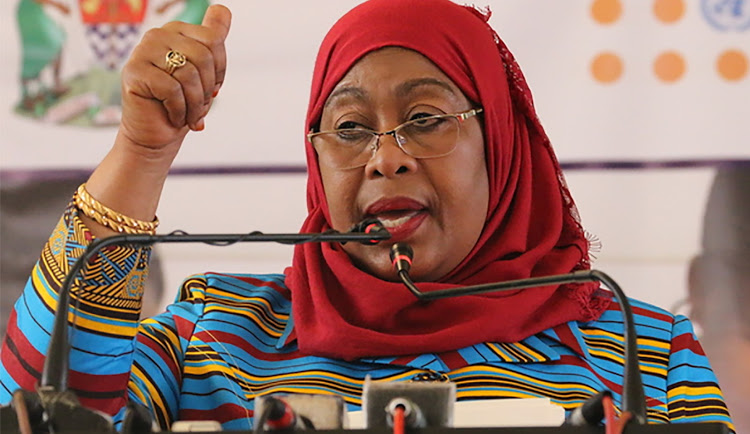
The ACT-Wazalendo party has been closely following and monitoring political events in the United Republic of Tanzania which, if not attended to urgently, might lead our country into an abyss.
In the six years of the presidency of John Pombe Magufuli, the country suffered a lot. There were claims of narrowing of the democratic space, the right to assemble and the right to free speech.
After the death of President Magufuli and Samia Suluhu Hassan assumed power, there was a sign of hope. The public optimistically welcomed the 4Rs (Reconciliation, Rebuild, Reforms, Reunite). Several positive measures were taken, including the formation of a special task force, which involved members from political parties, academic institutions, the private sector, and civil society. The team came up with many measures to be undertaken: Reform of political parties and elections laws, and the enacting of a new constitution. The President went further to investigate the problems around the criminal justice system and how to solve them.
It is one year to the next general election expected in October 2025, but there is a lot of pessimism, as not enough measures have been taken as promised. Even though the Elections Act was reviewed and the Electoral Commission renamed the Independent Electoral Commission, there is a lot to be done, including writing a new constitution and implementing the proposed reforms to the criminal justice system.
recently, there have been cases of abductions and disappearances of some activists and politicians. The situation got tense after a leader of Chadema, Ali Mohamed Kibao, was abducted and later found dead. Chadema accused the government security forces of these events and called for independent investigations. President Samia also condemned the abductions and ordered investigations.
Chadema also called for peaceful protests, demanding accountability and the police banned the demonstrations.
These happenings are a sign of uncertainty towards the general election, starting with the civic elections expected next month.
We urge the Chadema to reconsider demonstrations in the country. Human rights abuses are not just morally wrong, they are short-sighted. Human rights are a sound investment. They build resilient and prosperous communities and strong institutions based on the rule of law.
We, as a party, believe that our country has people full of wisdom and religious leaders who can guide our country back to the right track.
We urge all sides of the political divide to cool down. We believe that all players have reasonable demands and the failure to listen to each other has led us where we are as a country.
We urge the government to quickly initiate dialogue involving political leaders, the police, religious leaders and other stakeholders in order to bring sanity back to our country.
Our party leaders are engaging in talks between the government and other political parties to find solutions. We urge all the citizens of Tanzania to be united on this to build a better future. we believe that this is the time to talk.
Othman Masoud Othman is the First Vice President of Zanzibar and National Chairperson, of ACT-Wazalendo.
EDITOR’S PICK
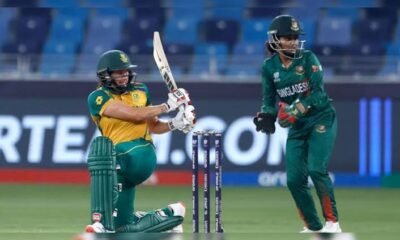

South Africa succumbs to New Zealand in T20 World Cup final
After a fairytale run to the final of the Women’s T20 World Cup in Dubai, South Africa succumbed to New...
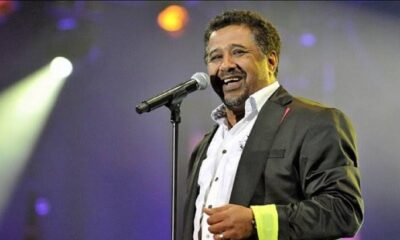

Algeria accuses renowned Singer Cheb Khaled of spying for Morocco
Algerian authorities have accused renowned musician, singer and songwriter, Cheb Khaled, of spying for neighbours Morocco as another wave of...


Rwanda’s e-mobiility startup IZI expands electric bus fleet after getting grant from Green Fund
Rwanda’s e-mobility startup, IZI, has announced the delivery of five electric buses to Kigali, the country’s capital city, after obtaining...
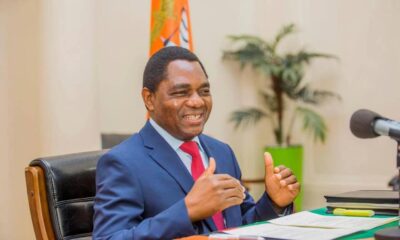

Zambia: President Hichilema sacks three Constitutional Court judges
Zambian President, Hakainde Hichilema, has finally sacked three Constitutional Court judges whom he had earlier placed on suspension. The affected...


In 6 months, Nigerians spent over $2.38 million on medical tourism
According to a recent report, Nigerians spent over $2.38 million on international healthcare services between January and June 2024. The...
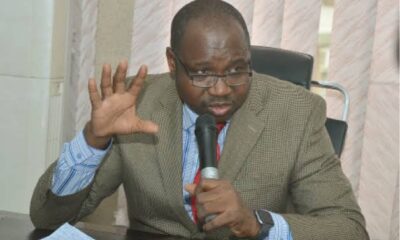

Nigeria confirms supplying 24-hr power to Togo, Benin, Niger
Despite its inability to provide steady electricity for Nigerians amid regular collapse of the national grid, Nigeria’s electricity regulatory body,...


Egypt reduces 2040 renewable energy target to 40%, prioritises natural gas
Petroleum Minister Karim Badawi announced on Sunday that Egypt had reduced its 2040 renewable energy target down from a previous...
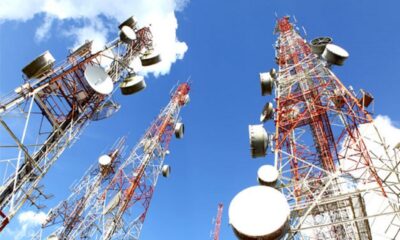

Nigerian govt imposes 5% tax on telecom, betting services
As part of a new plan to restructure the nation’s tax system, the Nigerian government has proposed a 5% excise...
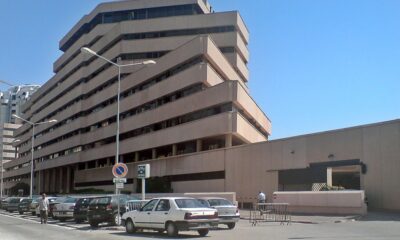

Again, Tunisian MPs want exclusive power of central bank over interest rates abolished
A measure by MPs on Friday indicated that the Tunisian central bank will no longer be the only entity able...
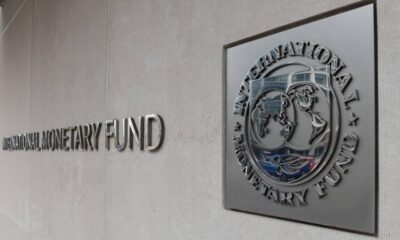

Ethiopia gets first $341 million loan program from IMF
Ethiopia’s $3.4 billion loan program received approval from the International Monetary Fund’s executive board on Friday, the fund announced, opening...
Trending
-
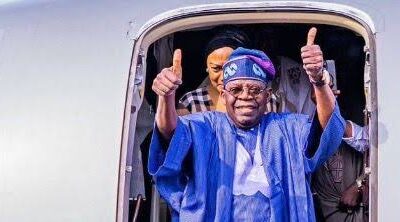
 Metro2 days ago
Metro2 days agoNigerians will begin to see the fruits of Tinubu’s labour— CoS Gbajabiamila
-

 VenturesNow2 days ago
VenturesNow2 days agoNigerian govt imposes 5% tax on telecom, betting services
-

 VenturesNow2 days ago
VenturesNow2 days agoEthiopia gets first $341 million loan program from IMF
-

 Metro16 hours ago
Metro16 hours agoNigeria confirms supplying 24-hr power to Togo, Benin, Niger


